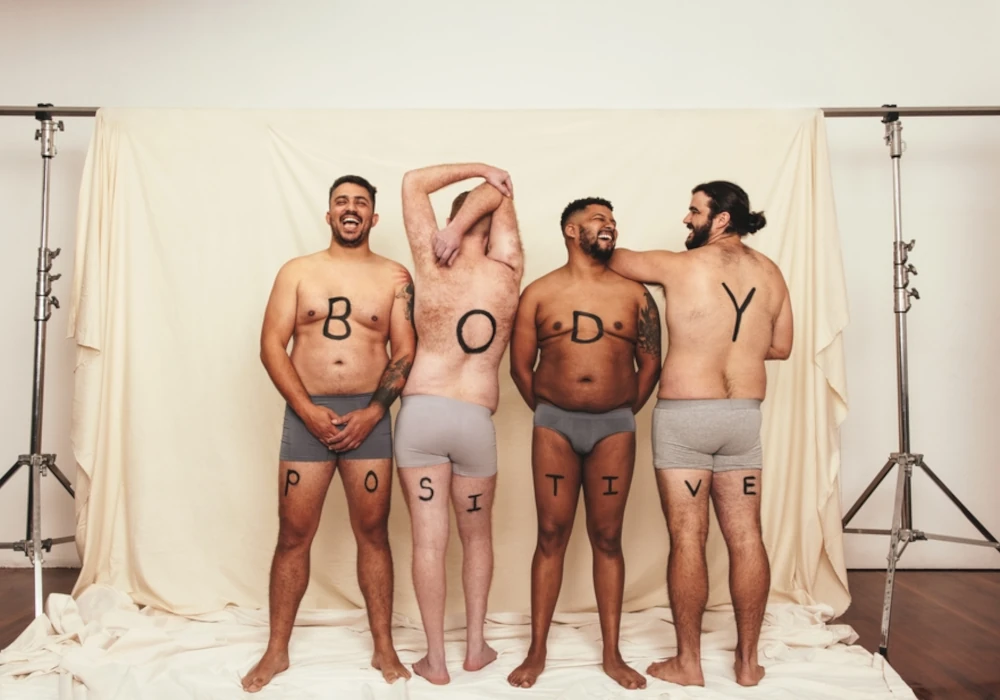Diversity is something we see more and more in the media lately. Not only on social media of some alternative profiles, but in the advertising campaigns of international brands. One could almost think that XXL clothing sizes are a current trend. But that is not at all what the body positivity movement is about.
The movement began in the 1960s in the USA, especially among African-American civil rights activists. With the founding of the National Association to Advance Fat Acceptance, the protest against the common ideals of beauty and discrimination against fat people was initiated. Representatives of the body positivity movement advocate accepting all kinds of bodies and treating them with respect. Weight is only one aspect, among many other supposed flaws such as body hair, scars, disabilities, wrinkles and many more.
It is empirically proven that fat people or generally people who are not attractive when measured against the given ideal of beauty are clearly disadvantaged in many areas of life. They are stigmatised, considered lazy or less intelligent. This results in fewer job opportunities, less frequent salary increases and even hidden or direct insults.
Of course, this is not fair, but then again, can the solution be for everyone to settle for being overweight or having pimples? Isn’t being overweight totally unhealthy?
Yes and no. What is especially unhealthy is the constant dissatisfaction with one’s own body. Our body image is considered an important pillar of self-esteem and those who perceive their body image negatively are more likely to suffer from stress, anxiety and depression. People with a positive body image are more stress-resistant and experience more positive emotions. A large German youth study found that as many as 30% of boys and more than 40% of girls feel too fat even in primary school. As long as we compare ourselves to the edited photos of models and have diet promises and fitness crazes surrounding us, this will probably not change for a long time.
Self-hatred is by no means a good motivator for a healthier lifestyle. As an evaluation of more than 100 studies suggests, unsolicited diet tips, scornful looks and exclusion can have severe consequences for the psyche, often promote stress eating and diminish the desire to exercise. Hence, fat-shaming helps no one.
However, if the path to absolute self-love seems too unrealistic, it might be easier to make friends with the approach of body neutrality. You don’t always have to feel beautiful in order to feel respect and appreciation for your body. According to the motto: I am grateful to my body for carrying me through this life, no matter how it looks. This kind of gratitude offers an effective motivation to treat one’s own body well.
You may want to try out the following tips for more self-love:
Become aware of your strengths.
Surely you admire more in other people than just their appearance. What makes a person lovable to you? Write down the qualities you value in yourself. Be generous and speak to yourself the way you would to a good friend.
Be aware of your thoughts.
It is all too easy for the inner critic to take hold of us. In your thoughts you speak disparagingly and disrespectfully to yourself. Recognise these destructive thoughts, question them as objectively as possible and distance yourself from them internally.
Clean up your social media feeds.
Look for realistic role models. You should not see anything on your feed that makes you feel bad. Instead, only follow accounts that make you happy or add value.
Be grateful to your body.
Thanks to your body, you can experience wonderful things like hugs, dancing or delicious food. For that, at least, it deserves appreciation. What are you grateful for?
Take care of your body.
You can treat your body well by being active and providing it with valuable energy on a regular basis. Not because you feel you have to, because it’s healthy. But because you feel good about it.

